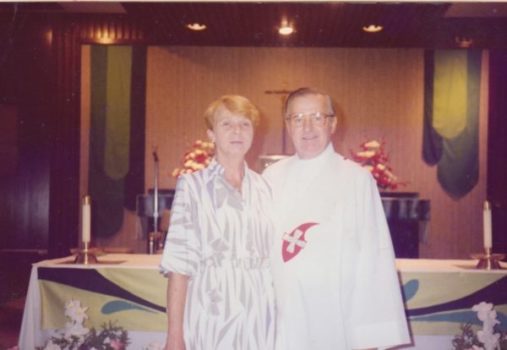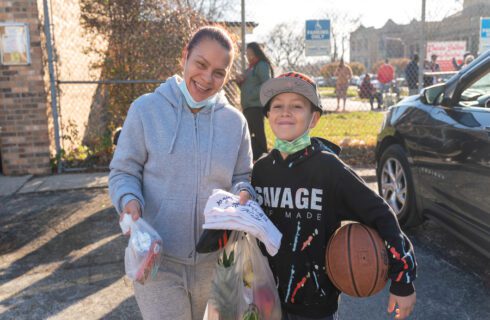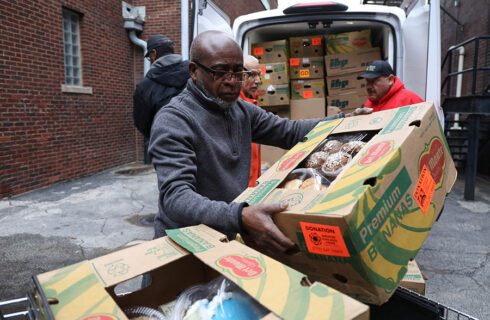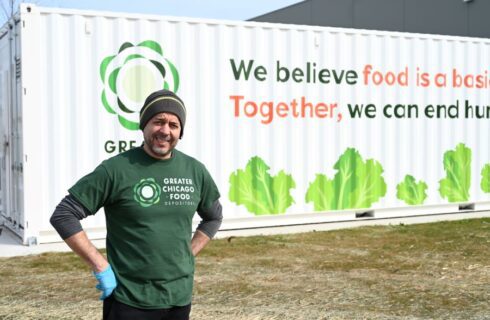At age 16, an Irish tenor from Chicago named Tom O’Connell won The Original Amateur Hour, a popular national talent competition. Later, as a young Air Force lieutenant, O’Connell flew jets in the Korean War. And upon returning from war, he sold life insurance, a job that opened his eyes to the challenges of others.
A father of five children, O’Connell also helped found the Greater Chicago Food Depository in 1979. His life was defined by music, action and compassion, his daughter recalled.
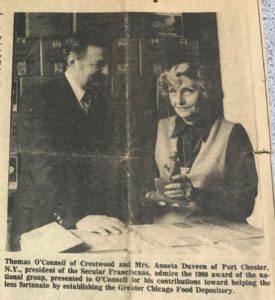
A photo of Tom O'Connell from a newspaper article published in 1980.
“My father had a song for everything, and the song was always about service,” said Marge Nykaza, 65, O’Connell’s oldest daughter. “He led his life by – you just use your gifts to make the world a better place. If there is a need in society, you fill it.”
McConnell and five others – Bob Strube, Sr., Gertrude Snodgrass, Rev. Phil Marquard, Ed Sunshine and Ann Connor – formed the Food Depository in hopes of finding a more systematic way of feeding people experiencing hunger in Chicago and throughout Cook County.
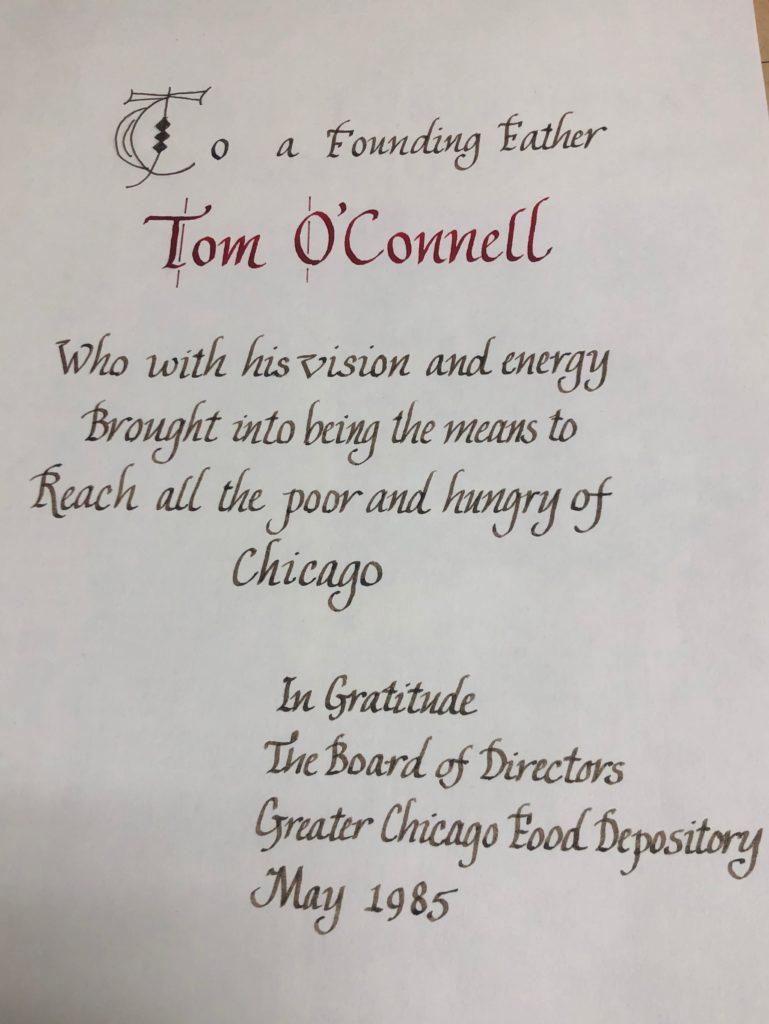
A document given to Tom O'Connell by the Board of the Directors in 1985.
‘A man of action’
A lifelong Catholic and member of the Third Order of St. Francis, known today as the Secular Franciscan Order, O’Connell was inspired to take action after reading a Chicago Sun-Times series on hunger in Chicago, Nykaza recalled.
“My father was a man of action. … He was so concerned that he knew he had to help rectify that problem and bring food to the hungry,” Nykaza said.
Together, O’Connell and Marquard attended a conference in Minnesota in 1978, where they heard about the nation’s first food bank in Phoenix, Arizona.
Subsequently, O’Connell traveled to Phoenix to see what they needed to do to start a food bank, Nykaza said.
“They told him, ‘You can’t push this on a community, the community has to be willing to work together with you,’” Nykaza said. “When he came back, he knew he had a choice. He had three sons in his house, two other kids, trying to make a living, did he want to get this running?”
Nykaza said she talked to her dad every day.
“He’d say you won’t believe what happened. We got all this food from this place for the community and we met with Bob Strube,” Nykaza said.
Strube, a well-respected produce wholesaler, provided one of his produce stalls at the once bustling South Water Market as the Food Depository’s first home.
“I remember my dad renting a truck, having my brothers in the car with him picking up food, and there were so many people who helped, who gave their time as my dad did, ” Nykaza said.
A father’s legacy
O’Connell’s career as an insurance salesman provided him with a unique view into the struggles of other people, particularly in older adults.
“He went around to people’s houses, mainly elderly and he would see right away that they were over-insured, paying too much for what they needed, so he would try to make it more fair to them by rewriting policies,” recalled Sunshine, who’s now living in Florida. “And he would come back with these stories and say, we need to do something about this to help the people.”
In 1981, O’Connell was diagnosed with multiple myeloma, a cancer of the plasma cells.
“He was the type of guy that said, ‘Okay other people can do this, I am going to move on to the next thing,” Nykaza said.
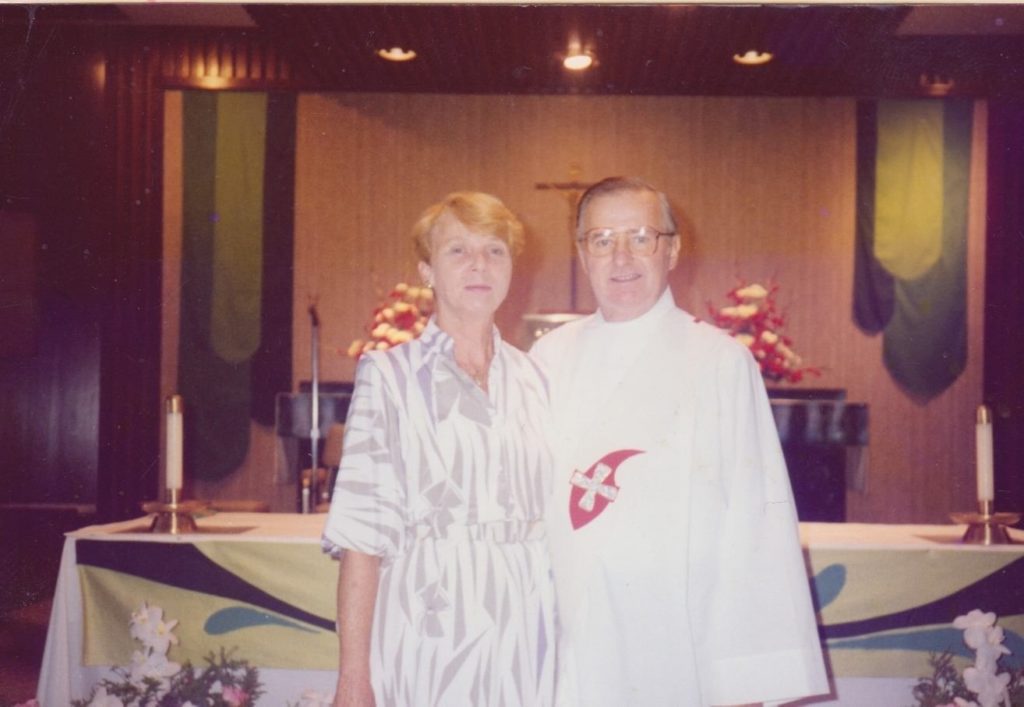
Tom and his wife, Marge, on the day he was ordained in 1986.
He had become a deacon at Incarnation Church in 1986, but later lost his voice because of the cancer, Nykaza said.
O’Connell died in 1987. He was 60 years old.
“The last day of his life he was planning a healing service,” Nykaza said. “That was the kind of man he was.”
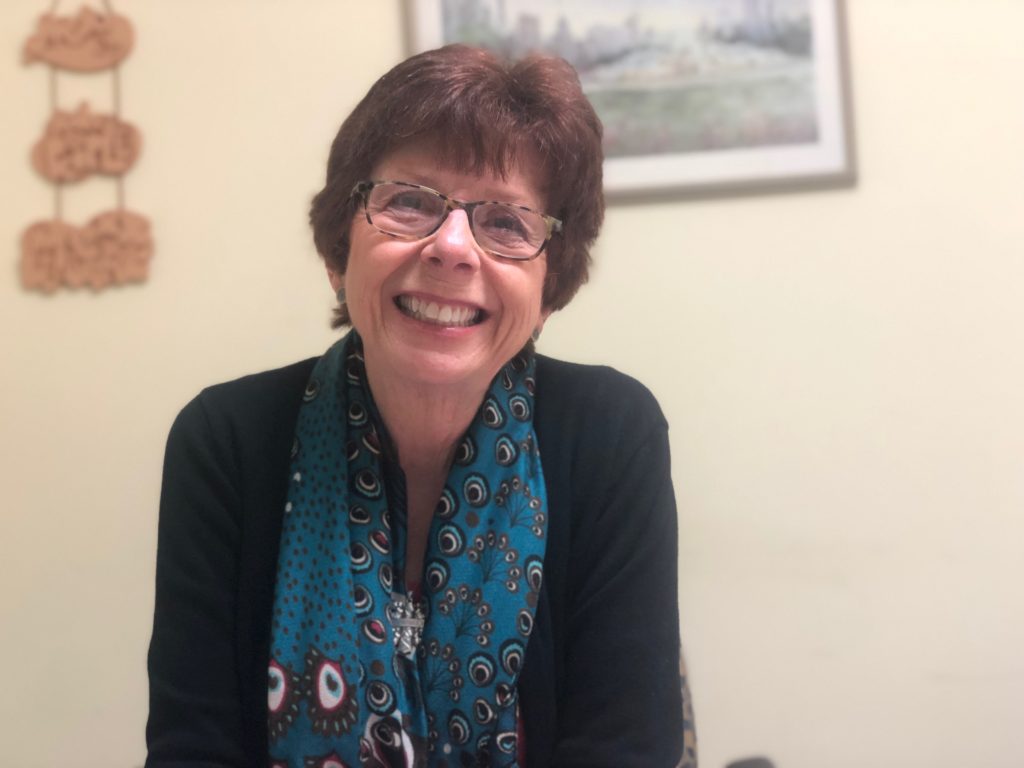
Marge Nykaza in her office at Harmony, Hope and Healing.
In 2003, Nykaza founded a Chicago-based nonprofit called Harmony, Hope and Healing, which works to heal trauma through music classes.
“We are about feeding people in a different way,” Nykaza said.
O’Connell’s work and legacy in building the Food Depository inspired his daughter to find her own way to help people.
“Every time I was unsure if I was doing something right, I would look up and see a Greater Chicago Food Depository truck,” Nykaza said. “The truck reminded me I can do it because my dad did.”
Read more about the Greater Chicago Food Depository’s history.
Share This Post

